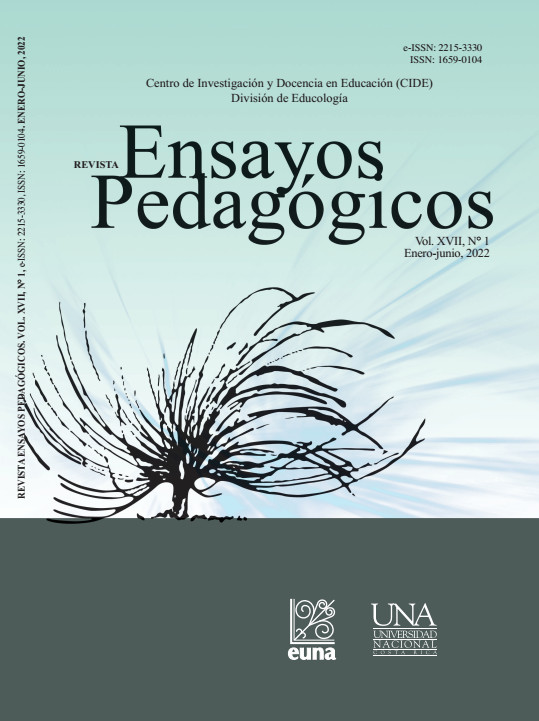The Processes of Continuing Education as Follow-up Mechanisms for Graduates of the Teaching Majors from the Department of Educology, Universidad Nacional, Costa Rica
DOI:
https://doi.org/10.15359/rep.17-1.15Keywords:
continuing education, evaluation, graduate follow-up, pedagogical mediation, trainingAbstract
This paper reports on the results of a study carried out in the framework of a university outreach project entitled: "Strengthening Pedagogical Mediation for Graduates of Teaching Majors” from División de Educología (DE), of Centro de Investigación y Docencia en Educación (CIDE) from Universidad Nacional of Costa Rica (UNA), which implements continuing education actions for the improvement of pedagogical mediation. This article aims to determine, from the perception of graduates in the teaching majors, the possible priority areas that require continuous training. The research was based on the naturalistic paradigm and a methodology that assumes a type of mixed research, based on the use of a questionnaire consisting of open and closed questions. The research was carried out in collaboration with 94 graduates from various institutions and areas of the country, who participated in the continuing education courses taught in 2018, so the results obtained cannot be generalized. Among the main results, the need for a continuous, systematic, and progressive training program that allows them to improve their pedagogical mediation in pedagogical areas, such as teaching, evaluation, teaching resources, and teaching professional development stand out.
References
Anijovich, R. y González, C. (2017). Evaluar para aprender. AIQUE.
Belver, J. (2018). La formación continua es un elemento fundamental para el desarrollo y supervivencia de las empresas y su capital humano. https://www.educaweb.com/noticia/2018/02/28/formacion-continua-es-elemento-fundamental-desarrollo-supervivencia-empresas-su-capital-humano-16337/
De Bono, E. (2018). El pensamiento creativo. Paidós.
Díaz, D. (2017). ¿Por qué educamos? LID.
División de Educología. (2021). Misión y Visión. https://www.cide-educologia.una.ac.cr/index.php/quienes-somos/mision-vision
Garzón, A. G. (2018). Modelo para el Seguimiento y Acompañamiento a Graduados (SAG), una visión holística de la gestión de la calidad de la educación superior. Educación 27(52), 201–218. https://doi.org/10.18800/educacion.201801.011
López-Barajas, E., Ortega, M. C., Albert, M. J. y Ortega, I. (2016). El paradigma de la educación continua: reto del siglo XXI. Narcea Ediciones.
Ortega, M. y Ortega I. (2009). Nuevos contextos formativos para el desarrollo de la educación permanente. En E. López (Coord.), El paradigma de la educación continua: reto del siglo XXI (pp. 109-130). Narcea.
Ortega, I. (2009). La naturaleza de la innovación en la educación permanente. En E. López (Coord.), El paradigma de la educación continua: reto del siglo XXI (pp. 153-168). Narcea.
Tardif, M. (2010). Los saberes del docente y su desarrollo profesional. Ediciones Narcea.
Published
How to Cite
Issue
Section
License
Ensayos Pedagógicos is subscribed to the Attribution-NonCommertial-NoDerivatives 4.0 International Creative Commons Licence, which allows both authors and readers to freely download, store, copy, and distribute the final approved publisehd version of the manuscript (post-print) as long as this is done without commercial purposes, no derivative works are generated, and the source and author are mentioned. As well, Ensayos Pedagógicos declares that authors will remain the rightful owners of the copyrights of their work in perpetuity.







